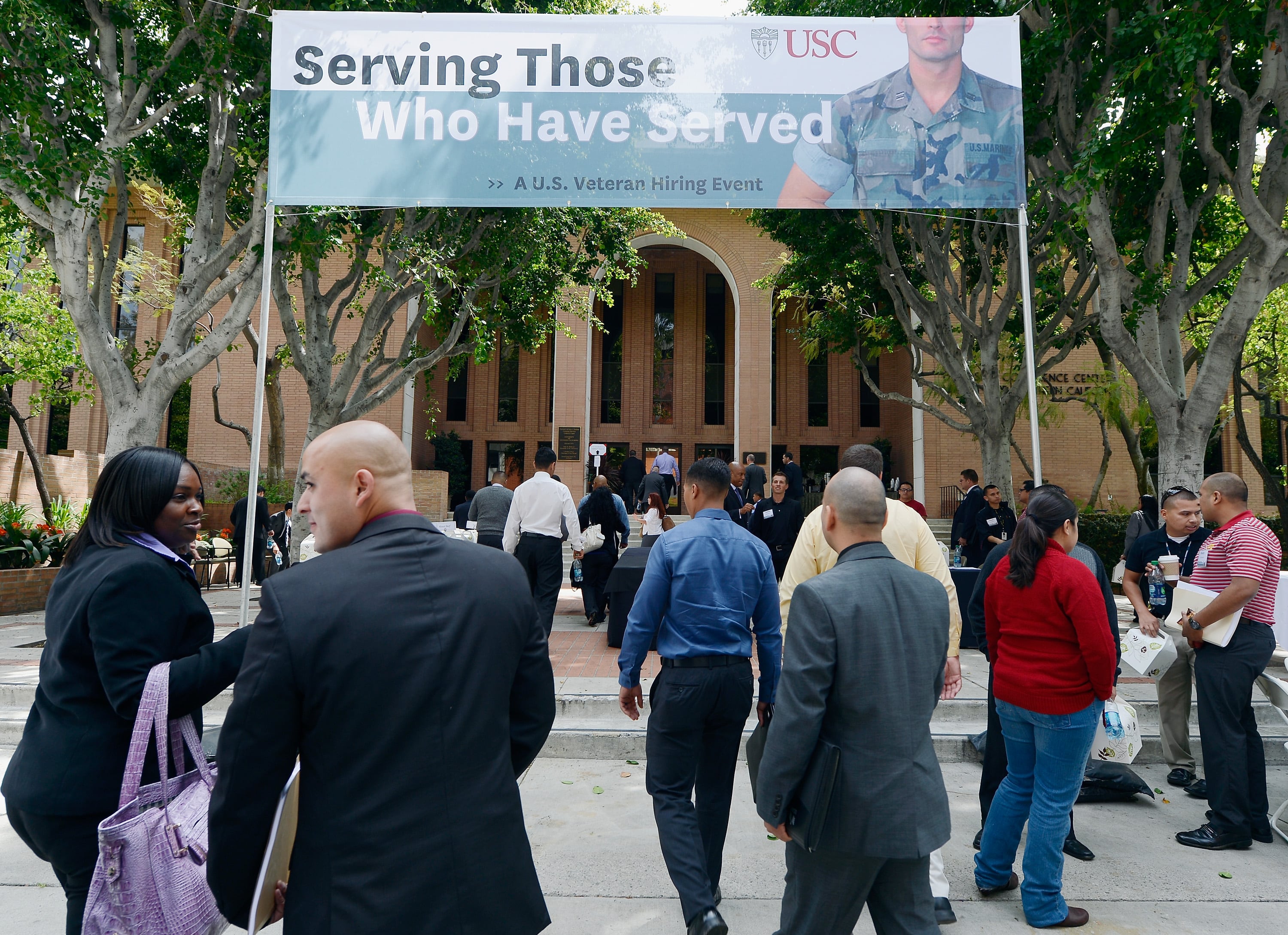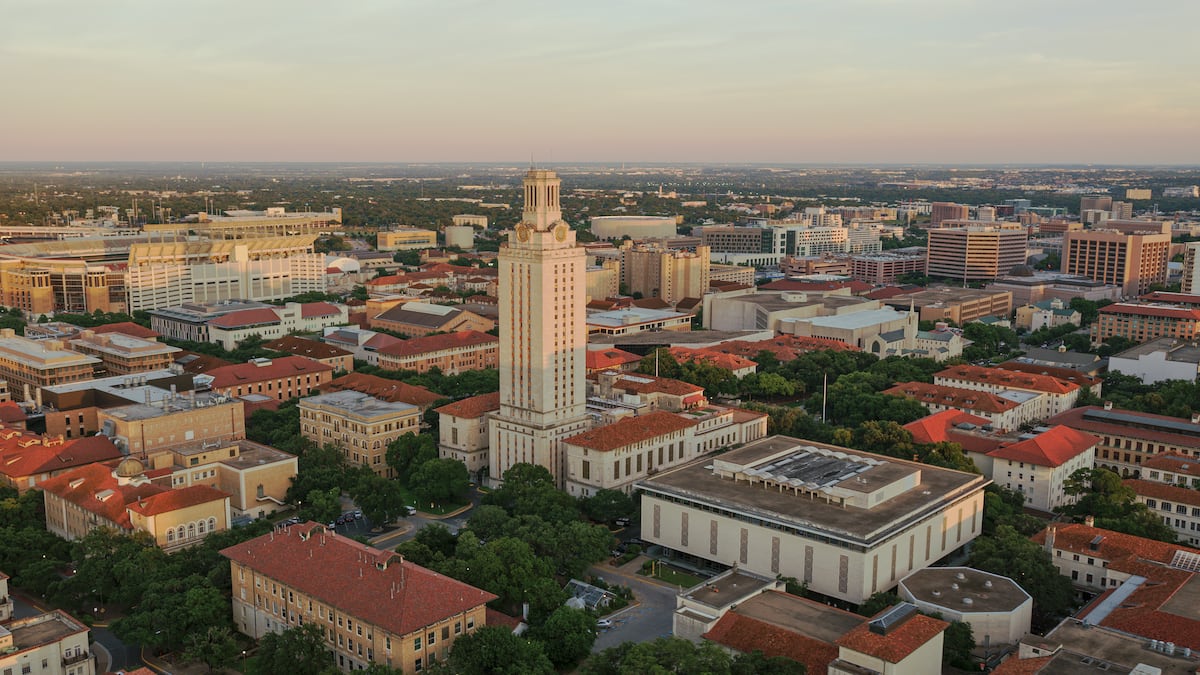Just off the main mall of the University of South Carolina’s campus sits the school’s Veterans and Military Center of Excellence, which since 2021 has served as a retreat for veterans to get answers about their benefits or simply relax with fellow former service members.
But in recent years, more and more non-veterans can be found in the building, too.
“We really try to engage our military dependent student population along with the veterans,” said Candace Terry, executive director of veterans and military affairs at the university. “We invite them into the lounges, we bring them in because they also earned that by their service as a family member.
“And that’s important, because they offer a unique bridge between the general student population and the veterans. They have an idea of what both lifestyles and identities are like. And they can help share that.”
University of South Carolina was ranked as the #7 school in the 2024 Military Times Best for Vets Colleges rankings in large part because of those types of efforts to both cater to veterans needs and find ways to better integrate transitioning veterans into campus life, through evolving outreach and introduction efforts.
“Right now we have about 900 dependents on campus and about 200 veterans,” Terry said. “It’s really important to us that we make sure all of our military connected students feel included.”
That focus on community building, along with attention to veterans’ and guardsmen’s individual needs, is a common theme among the top schools on the list, compiled annually to highlight the top performing education institutions and their best practices in outreach to the military community.
“We don’t grade schools on the number of veteran students they do or don’t have. It’s more a focus on what their policies are,” said Hilary Niles, survey coordinator for the Best for Vets list.
“Some of that is certainly financial support for military students and to what degree schools go above and beyond the educational benefits already offered. But do they have strategies for working with military-connected students in a way that makes higher education accessible, and that helps those students succeed?”
Extra veteran resources
The University of the Incarnate Word, for example, which was ranked the top school on the list for the last two years, provides annual training and guidance to staff, faculty and students with a “Military 101″ course.
The university also features a unique Space Force ROTC program, and university leadership sends out frequent email reminders on best practices for working with military-connected students.
California State University-San Bernardino, this year’s #12 school, offers employee training focused on military-related disabilities. Texas Tech University, ranked 9 on the list, was just named the new home of the Armed Forces & Society Journal.
At University of Nebraska at Omaha, the second-ranked school on the 2024 Best For Vets list, officials have spent the last two years conducting small group meetings with veterans and military-connected students to talk about their biggest needs and challenges.
“Right now, that focus seems to be on career readiness, things like employer networking and ensuring that when we get those students through our programs, there are opportunities waiting for them,” said Sara Karnowski, director of military and veterans services at UNO.
“So, we’re working on ways to leverage both what veterans bring from their time in the service and what they’ve gained through higher education, and then showing them how to market themselves better to employers. And the response so far has been very positive.”
Almost 11% of University of Nebraska at Omaha’s student population is military connected. The college campus sits about 12 miles from Offutt Air Force Base, home to around 15,000 service members and military dependents.
“So, we have military representation in the area and throughout campus,” Karnowski said. “One of our college deans is a veteran, one of our senior vice chancellors is a veteran. We’ve got veterans in campus security and all the way up through our high-level academic administrators.”
That makes conversations about the needs of veterans and their family members easier to broach at the college, but doesn’t diminish the importance of having those discussions, she said.

Future goals
Terry said one of the ways administrators help foster those conversations at her South Carolina campus is through service projects, such as the school’s annual Sept. 11 memorial ceremonies.
Each year, student veterans plant hundreds of flags to mark the lives lost in the terrorist attacks in New York, Pennsylvania and Washington, D.C. And Terry said every year, the number of volunteers grows as the day progresses.
“While our veterans are out there placing those flags, the general student population will stop and engage in conversations about what this event meant to us,” said Terry, a Navy veteran. “And we talk about what it meant to our service, and how it shaped us during that time.
“It’s engaging, because a lot of the students we’re talking to now weren’t alive when that happened.”
Terry said one of the goals of staff at the veterans center in coming years is for more emphasis on faculty involvement on veterans issues and engagement, to build more transitional knowledge for the campus as classes of students cycle through their studies.
Karnowski said officials at University of Nebraska at Omaha are focused on expanding their listening sessions in coming years, with a broader focus on the specific needs of military dependents.
The school in recent years changed the name of its veterans center to the “Military-Connected Resource Center” in an effort to welcome in more military family members, similar to South Carolina’s push.
“I think most of our efforts are going to be spent making sure that we’re intentionally connecting with our students,” she said, “so that they know not only are we trying to recruit them to this institution, but we also want to be there with them as you go through this journey, and then get them into a really good opportunity once they finish.”
Niles said a trend she has seen in compiling the Best For Vets college list in recent years has been universities using the rankings to see how other schools are succeeding, then copying those ideas at their own campuses.
“We get a lot of thank yous every year after this, because it essentially gives everyone a roadmap of what policies to consider,” she said. “It serves as a map for ways to support military connected students.”
Leo covers Congress, Veterans Affairs and the White House for Military Times. He has covered Washington, D.C. since 2004, focusing on military personnel and veterans policies. His work has earned numerous honors, including a 2009 Polk award, a 2010 National Headliner Award, the IAVA Leadership in Journalism award and the VFW News Media award.
Read the full article here


